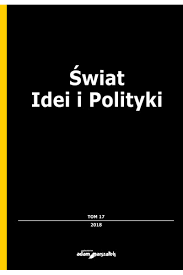Zagadnienia migracji w nauczaniu Kościoła katolickiego
Migration in the teaching of the Catholic Church
Author(s): Maciej ZaborskiSubject(s): Ethics / Practical Philosophy, Political Philosophy, Governance, Politics and religion, Politics and society, Asylum, Refugees, Migration as Policy-fields
Published by: Wydawnictwo Adam Marszałek
Keywords: migration; teaching of the Catholic Church; Promised Land; Vatican II;John Paul II;
Summary/Abstract: The phenomenon of migrating the population – migration of people (Latin: migratio) has been known since time immemorial. Its purpose is to change the place of stay of an individual or group. Displacements are historical, cultural, social, political, but also religious. The purpose of migration is to change the place of residence for various reasons, including for economic, political and social reasons. The Word of God states that “the earth belongs to me, and you are the strangers and settlers with Me” (Lev 25:23). The Dogmatic Constitution on the Church of Lumen Gentium (n. 9) teaches that “this people, though it does not currently include all people, and sometimes even turns out to be a small fl ock, is after all a powerful germ of unity, hope and salvation for the whole human race”. Also today, the Church, in response to the current international – political and economic migration situation, takes a stand in this matter. The article presents the issue of migration in teaching the Catholic Church also as a social problem. The author, striving for maximum reliability and showing the merits of the issue, considered the analytical method to undertake analytical and critical research of sources, referring to conciliar teaching and statements by Pope John Paul II and his successors on migration, emphasizing the moral and social aspect of this phenomenon.
Journal: Świat Idei i Polityki
- Issue Year: 17/2018
- Issue No: 1
- Page Range: 437-459
- Page Count: 23
- Language: Polish

